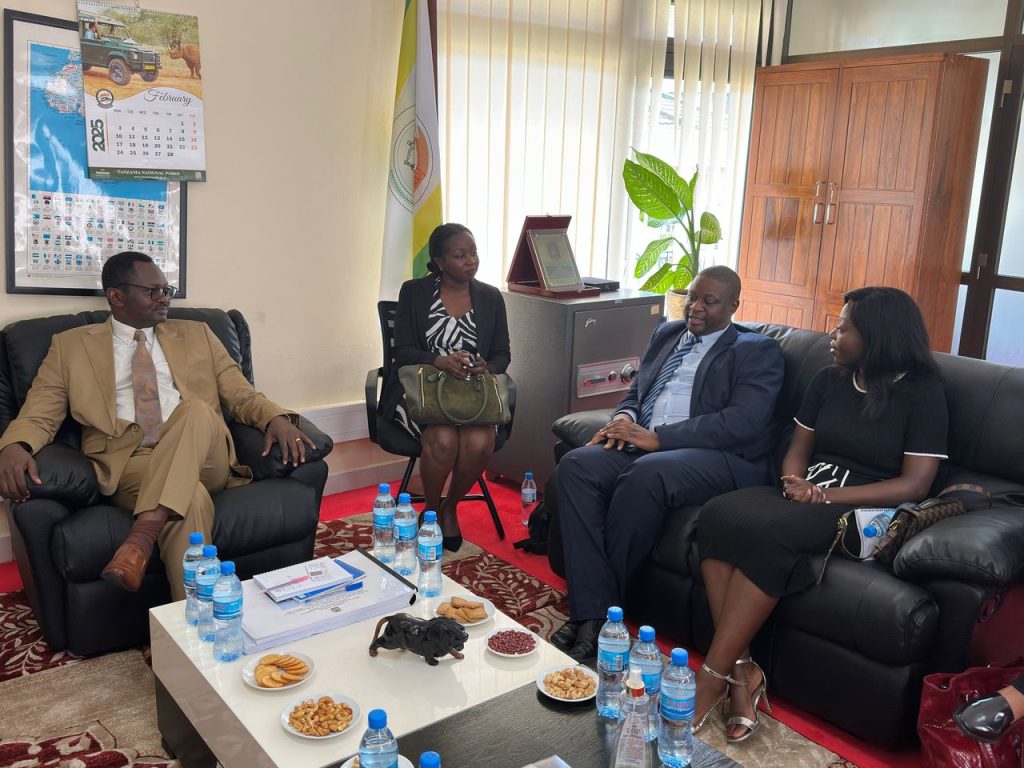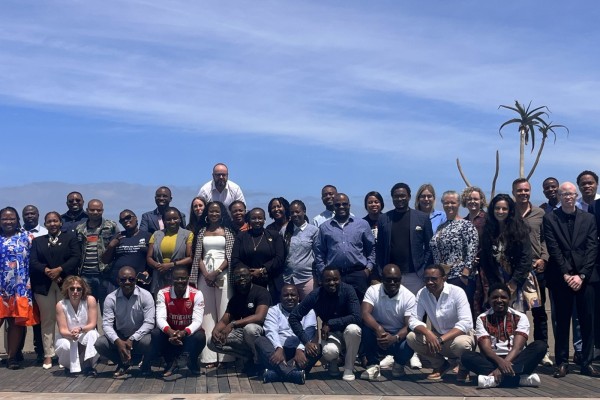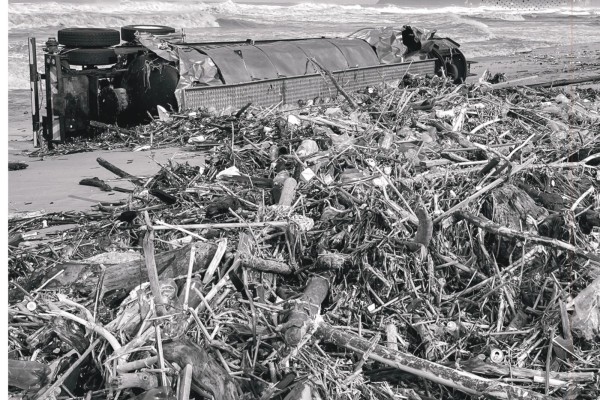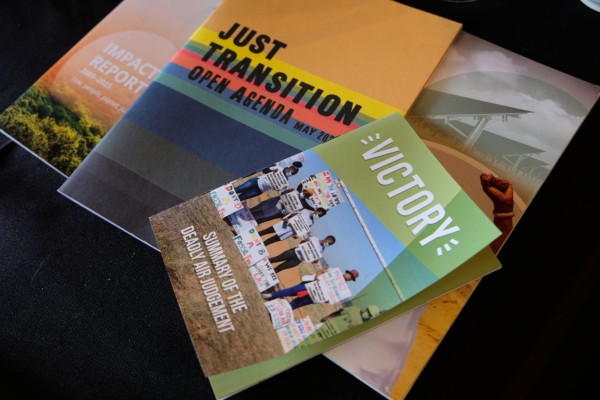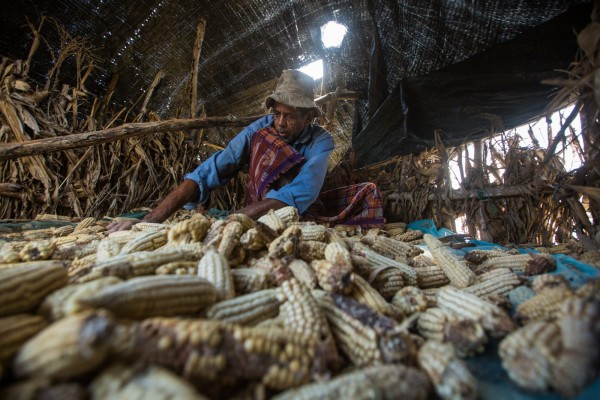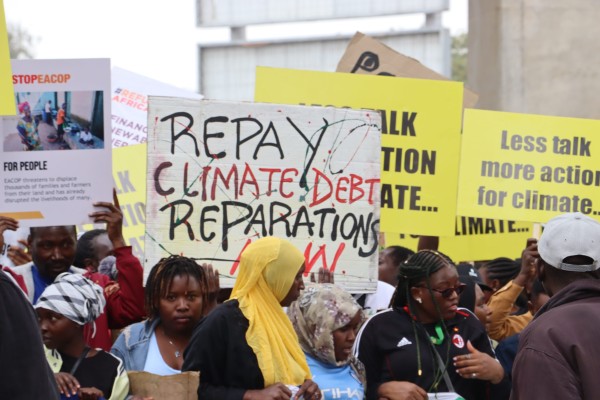Inside the Arusha Filing
In the early weeks of May 2025, a coalition of African environmental defenders, lawyers and campaigners known as the African Climate Platform (ACP), took a historic stance against the worsening climate crisis. Assisted by PALU (the Pan African Lawyers Union) and supported by ELCA (the Environmental Lawyer’s Collective for Africa) and Natural Justice, the platform filed a petition in the African Court on Human and Peoples’ Rights requesting it to provide legal guidance and direction on specific questions related to the consequences of climate change on the African continent. The questions intend to clarify the obligation of African States as stated under the African Charter on Human and Peoples’ Rights when addressing the nuanced impacts of climate change.
ELCA and Natural Justice supported this petition not only because it was important to show solidarity with the platform’s growing call for justice, accountability and clarity under African and international law, but also because it was important to contribute meaningfully to the legal reasoning within the petition.
ELCA and Natural Justice have had the unique opportunity of being part of two Advisory Opinion processes in the last three years, with the first being that of the International Court of Justice (ICJ), where Natural Justice made an independent submission (see link to submission here).
Consequently a few lessons and reflections can be drawn from these dual experiences which are highlighted below.
- Advisory Opinions, although not binding, have the potential to elevate human rights protection in climate change jurisprudence and support the development of new national jurisprudence.
- Regional context matters in framing legal questions. What occurs in Africa is different to the global North.
- There is power of strategic coalition building.
Before delving into these lessons, it may be important to initially reflect on what an advisory opinion is, the specific procedures of the African Court that regulate opinions, as well as the importance of this filing.
What is an Advisory Opinion and how is it initiated at the African Court?
Advisory opinions are distinct in nature, as they are uncontentious cases where a court is asked to give guidance on the interpretation of rights, principles, obligations or legal rules. Unlike in matters where parties or individuals institute claims against each other, advisory opinions allow for a more inclusive legal process, where the court may request states, experts, and respected bodies (for example, the African Union and registered civil society organisations) to make submissions to it on the questions tabled before it. Thereafter, the Court will make its finding.
The Advisory Opinion process in the African Court is initiated in terms of Article 4(1) of the Protocol to the African Charter on Human and Peoples’ Rights, as well as Rule 82 of the African Court’s Rules of Procedure. Article 4(1) highlights persons with standing in the eyes of the court to make such submissions. It only empowers certain actors—namely AU Member States, the African Union, its organs, and AU-recognized African organizations— to request an advisory opinion (for example Pan African Union of Lawyers has such recognition).
What Questions have been tabled to the Court?
The petition made to the African Court reveals a budding recognition that climate change is not only an environmental concern, but a weighty human rights question, especially on the African continent where indigenous communities are suffering from some of the globe’s most severe climate impacts.
- The petition comprehensively details issues of drought, flooding, food insecurity, water scarcity, deforestation and coastal erosion and the rights that are impacted by these consequences as enshrined under the African Charter.
- The paramount right highlighted is the Right to Life in terms of Article 11 of the Charter and the second paramount the Right to live in a Satisfactory Environment is in Article 24. However, numerous other rights which are linked to it are reflected including human dignity, property, free disposal of wealth and the rights of past, present and future generations and to look at international conventions that have an impact on the Charter.
- Vulnerable communities are also mentioned. The African Court is asked specifically to highlight what states’ obligations are to protect the rights of women, children, defenders, indigenous communities, peoples living with disabilities and the elderly in the face of climate change consequences.
- The petition does not shy away from issues of compensation and reparations by historic greenhouse gas emitters, for the environmental degradation caused as a result of such emissions. The petition asks the court to clarify the duties of states to hold other states and third parties accountable for acts that perpetuate the climate crisis.
- It further questions the obligations of states to ensure a just transition and asks the court to outline African states’ obligations with respect to ensuring adaptation and mitigation mechanisms are initiated and implemented to thwart the impacts of the climate crisis.
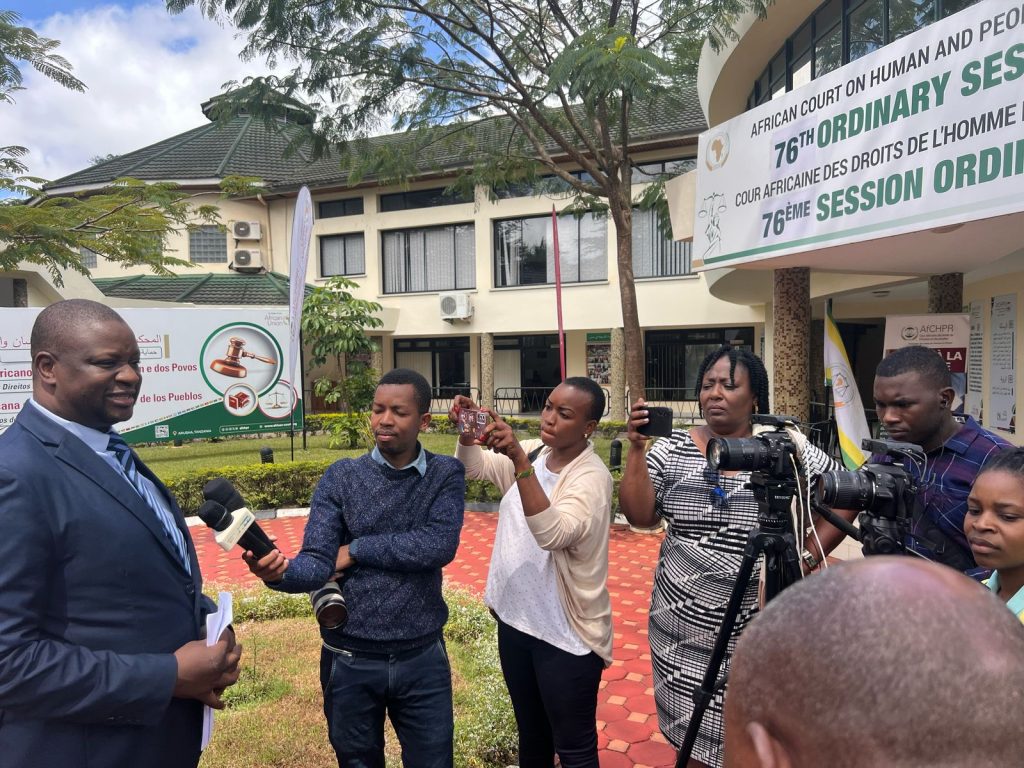
Lessons learned in this process
- Advisory Opinions, although not binding, have the potential to elevate and develop human rights protection in climate change jurisprudence in Africa:
It is well accepted that advisory opinions are not binding on states. This naturally raises a number of enforcement concerns. However, the non-binding nature of these opinions should not undermine the potential influence that they may have. For example, national Judges and Justices lean on advisory opinions when issues of interpretation of law are needed.
This particular petition which has been brought before the African Court, is the first of its kind on the African continent. The petition is, therefore, a pivotal opportunity to shape regional jurisprudence on climate accountability and is likely to provide valuable legal guidance to domestic courts in the region, when interpreting similar rights or adjudicating over climate and environmental matters.
The same point is made in a previous blog by Natural Justice in relation to proceedings before the ICJ, which highlights that,
“Academic writings have alluded that the court’s opinions are essentially obligatory for the requesting body and qualify as authoritative statements of law. For instance, the landmark opinion on the Construction of a Wall in Palestine (2004) and the Chagos Archipelago decolonisation case (2019) carried significant weight, compelling compliance from UN member States regarding their international legal duties and obligations. The ITLOS special chamber found that the Chagos Advisory Opinion had legal impacts and clear consequences for the legal status of the Chagos Archipelago”.
- Regional context matters in framing legal questions
When crafting the legal questions for the African Court’s consideration, context is important. It was essential for the petition to be reflective of the lived realities of African communities, in relation to the tangible impacts that climate consequences have had on their daily lives.
The questions highlighted in the petition were ones that intentionally speak to these experiences, ensuring that the Court’s opinion would be grounded in both the legal framework and the socio-environmental conditions facing the continent.
- There is power in strategic coalition building
The development and filing of this petition was anchored in the strength of a strategic coalition, united by the shared conviction that an Advisory Opinion from the African Court could significantly advance the cause of climate and environmental justice across the continent.
The initiative brought together a diverse alliance of actors – including legal scholars, environmental defenders, grassroots organizations, youth movements, and regional advocacy networks – who shared a common concern about the escalating climate crisis in Africa. This broad-based coalition ensured that the petition was not only legally sound but also deeply reflective of the lived experiences of African communities disproportionately affected by climate impacts. Each coalition member brought unique perspectives and technical knowledge, which enriched the framing of the legal questions and the grounding of arguments in both African Charter obligations and international human rights norms.
The unity of purpose also added political and moral weight to the petition, sending a strong message that civil society across the continent is demanding accountability, justice, and a rights-based response to the climate emergency.

